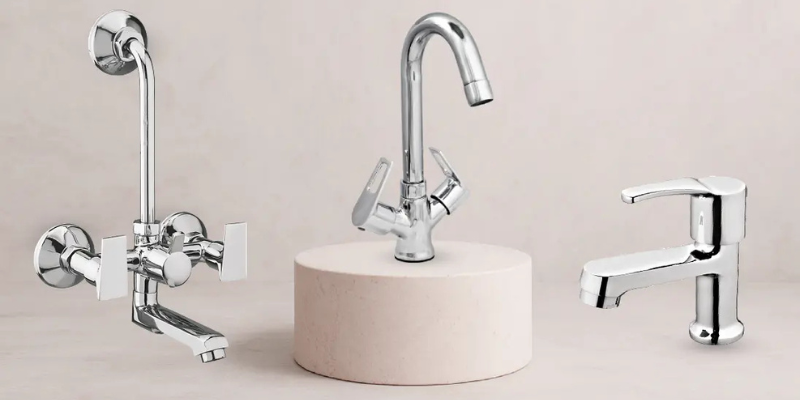Unlocking Young Minds: The Benefits of Improving Your Critical Thinking for Kids

Strong 8k brings an ultra-HD IPTV experience to your living room and your pocket.
In today’s fast-paced and information-heavy world, children need more than just academic knowledge to thrive. They need tools that help them make sense of what they see, hear, and experience. That’s where critical thinking comes into play. Teaching kids how to think critically equips them with the ability to evaluate ideas, solve problems, and make thoughtful decisions—skills that are essential not just for school, but for life.
Improving critical thinking is not an abstract concept reserved for adults or scholars. In fact, the earlier children begin learning these skills, the better equipped they’ll be to handle challenges with confidence, clarity, and creativity.
What Is Critical Thinking and Why Does It Matter?
At its core, critical thinking is the ability to analyze information objectively, question assumptions, consider various perspectives, and arrive at reasoned conclusions. It’s the foundation of logical reasoning and sound judgment.
For kids, critical thinking helps them:
- Interpret the world around them
- Communicate more effectively
- Resist peer pressure and misinformation
- Perform better academically
- Build emotional resilience
Unlike rote learning, which focuses on memorization, critical thinking encourages curiosity, exploration, and independent thought—key traits for lifelong learners and leaders.
Why Start Early? The Advantage of Cultivating Critical Thinking in Childhood
The brain develops rapidly during childhood. Research shows that the most effective time to build core cognitive skills is between the ages of 5 and 14. By nurturing critical thinking during these formative years, children can:
- Develop stronger problem-solving abilities
- Learn to think before they act or respond
- Handle complex social situations with empathy and understanding
- Gain confidence in their own reasoning
Children who are taught to ask “why,” “how,” and “what if” become better at understanding cause and effect, evaluating evidence, and distinguishing facts from opinions.
Academic Success and Beyond: Real-Life Benefits for Young Thinkers
Critical thinking doesn’t just make children smarter—it helps them perform better across multiple areas of life. Let’s explore some of the most compelling benefits.
1. Enhanced Academic Performance
Children with critical thinking skills are naturally better learners. They don’t just accept information—they engage with it, ask questions, and seek deeper understanding. This leads to improved performance in subjects like:
- Math, where logical reasoning is key
- Science, which requires hypothesis testing and evidence evaluation
- Reading and Writing, where they analyze texts and form coherent arguments
- Social Studies, where understanding multiple perspectives is essential
2. Improved Decision-Making and Judgment
From choosing friends to handling online interactions, kids constantly make decisions. Critical thinking gives them a framework to:
- Consider the consequences of their choices
- Analyze the pros and cons of various actions
- Make ethical and responsible decisions
This is especially important in the digital age, where misinformation and peer pressure can influence young minds.
3. Stronger Communication Skills
Critical thinking and effective communication go hand in hand. Kids who learn to structure their thoughts logically can express themselves more clearly—both verbally and in writing.
They also become better listeners, able to consider other viewpoints and respond thoughtfully rather than react emotionally. This builds empathy and teamwork skills, which are essential for healthy social development.
4. Greater Creativity and Curiosity
Many people think critical thinking is just about logic, but it also fuels creativity. When kids learn to think critically, they’re more likely to:
- Brainstorm original solutions to problems
- Ask deeper and more meaningful questions
- Explore multiple outcomes and possibilities
This blend of logic and imagination prepares them for success in careers of the future—especially those that require innovation and adaptability.
How to Nurture Critical Thinking Skills in Kids
Building critical thinking in kids doesn’t require advanced tools—just intentional effort, the right activities, and a supportive environment. Here’s how parents and educators can help:
Ask Open-Ended Questions: Instead of yes/no, ask “What do you think will happen next?” or “Why do you believe that?”
- Encourage Exploration: Let kids experiment, fail, and try again. Mistakes are great teachers.
- Model Thinking Out Loud: Show them how you make decisions by sharing your reasoning.
- Play Strategy Games: Board games and puzzles that involve planning and logic are excellent.
- Discuss Real-World Topics: Age-appropriate current events, ethical dilemmas, or even what’s happening in their favorite story can spark critical dialogue.
But one of the most impactful ways to strengthen a child’s critical thinking is through structured, engaging activities—like debate.
Why Debate Is the Ultimate Critical Thinking Tool
Debate challenges kids to think on their feet, support their arguments with evidence, consider opposing views, and communicate persuasively. It’s not about winning an argument—it’s about understanding issues from multiple angles and defending your point of view with logic and respect.
Here’s what debate teaches:
- Logical reasoning: Building arguments with clear structure and facts
- Active listening: Paying attention to counterpoints and responding effectively
- Empathy: Considering the views and feelings of others
- Confidence: Speaking in front of an audience with clarity and poise
For kids, these skills translate into better academic performance, stronger self-esteem, and leadership abilities that last a lifetime.
Looking for the Best Way to Get Started?
If you're searching for an engaging way to develop your child’s critical thinking this summer, the Best Summer Debate Camp in 2025 offers a perfect opportunity. With expert instructors, age-specific sessions, and a fun, supportive environment, this program is designed to empower kids with essential life skills while having a blast.
Whether your child is a beginner or has some experience, the program emphasizes critical thinking, persuasive speaking, teamwork, and creativity—qualities that will help them excel in school and beyond.
Final Thoughts: Building Thinkers, Not Just Test-Takers
Improving your child's critical thinking skills isn't just about better grades—it’s about giving them the tools to navigate life thoughtfully and confidently. In a world full of distractions, quick fixes, and conflicting information, the ability to think deeply and clearly is more important than ever.
By fostering these skills early—whether at home, in school, or through enriching programs like debate camps—you’re not only shaping better students but helping raise future leaders, problem-solvers, and innovators.
Note: IndiBlogHub features both user-submitted and editorial content. We do not verify third-party contributions. Read our Disclaimer and Privacy Policyfor details.



